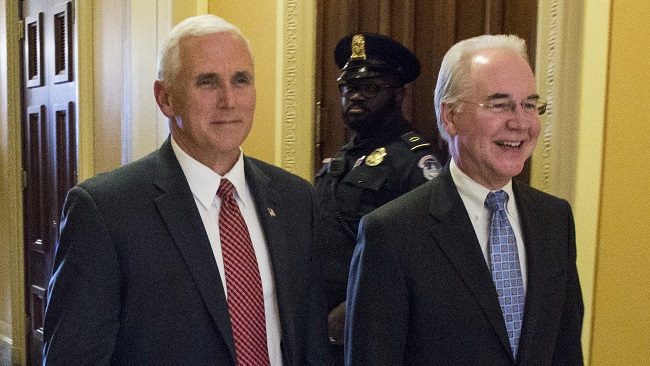
While representatives scrutinize the second attempt by House Republicans to push their long-promised Obamacare repeal through on Capitol Hill, the Wall Street Journal reports a little-known provision of the revived American Health Care Act could have disastrous consequences. Previous coverage already acknowledged aspects of the bill that would essentially penalize the sick while rewarding members of Congress. The latest revelation, however, suggests employers under certain circumstances would be able to cut basic types of coverage protected by the Affordable Care Act.
Per the Journal, Obamacare prevents insurers from placing annual limits on the amount of care they will provide, and outright bans lifetime limits on 10 “essential” benefits. The aforementioned provision in the ACHA’s latest update, however, would allow employers to bypass these bans altogether:
The provision, part of a last-minute amendment, lets states obtain waivers from certain Affordable Care Act insurance regulations. Insurers in states that obtain the waivers could be freed from a regulation mandating that they cover 10 particular types of health services, among them maternity care, prescription drugs, mental health treatment and hospitalization.
In other words, if a employer’s state obtains one of these waivers under Trumpcare, they would no longer be required by law to provide coverage for the 10 essential benefits. As outlined by the current iteration of the ACA, these include ambulatory patient services, emergency service, hospitalization, maternity care, mental health services, prescription drugs, rehabilitative services, laboratory services, preventative and wellness services, and pediatric services.
Some, like former Centers for Medicare and Medicaid Services acting administrator Andy Slavitt, told the Journal the provision “[creates] a backdoor way to gut employer plans.” Meanwhile, Kaiser Family Foundation Senior Vice President Larry Levitt maintained employers wouldn’t actually make significant cuts like these. “Many employers offer quality benefits to attract employees,” he said. “But employers are always looking for ways to lower costs.”
(Via Wall Street Journal)
